

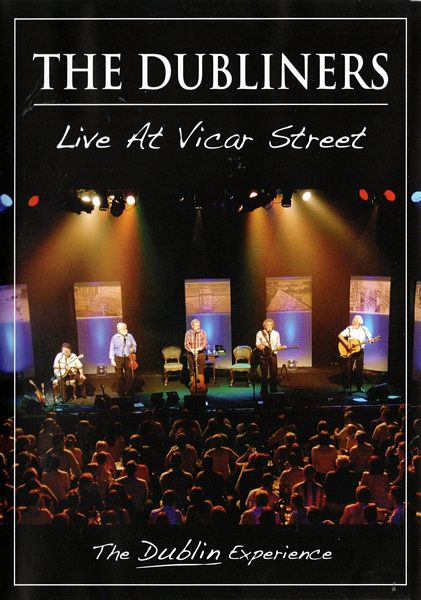 |
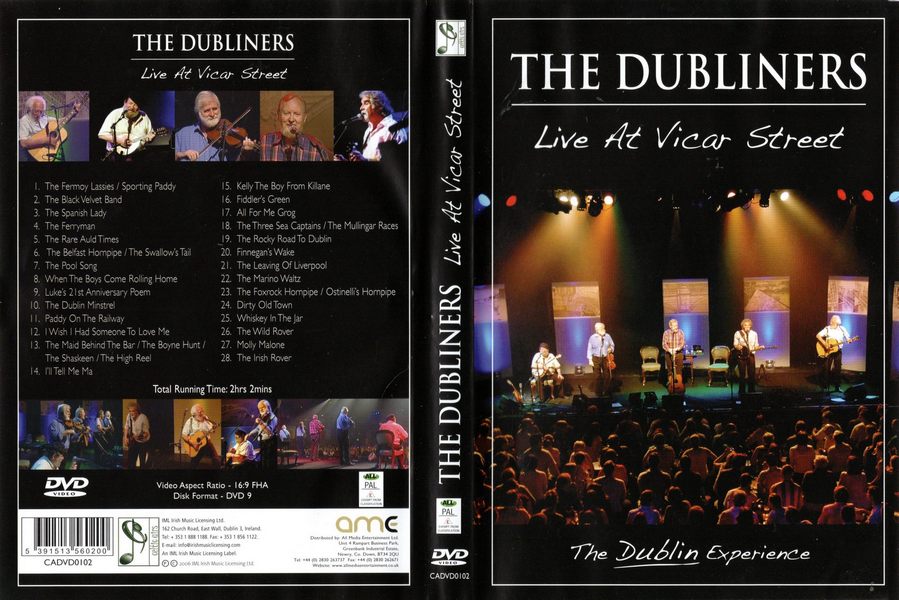
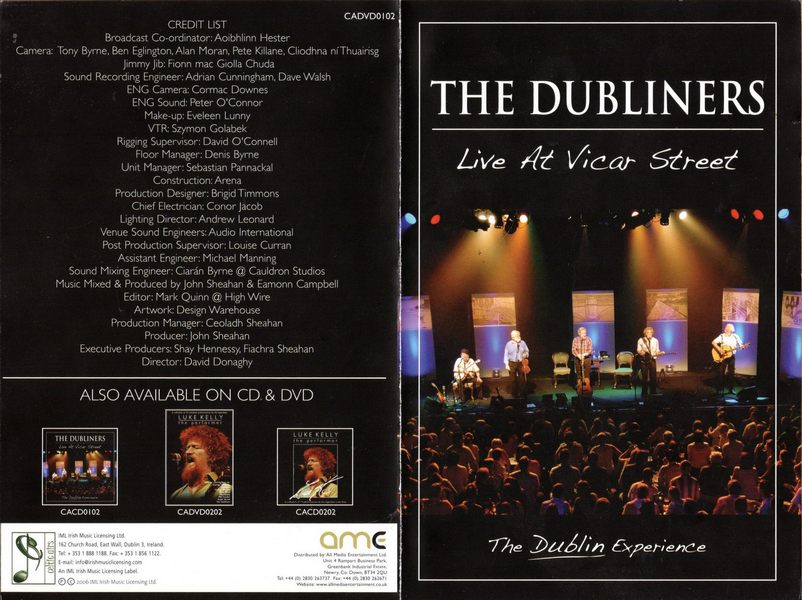
|
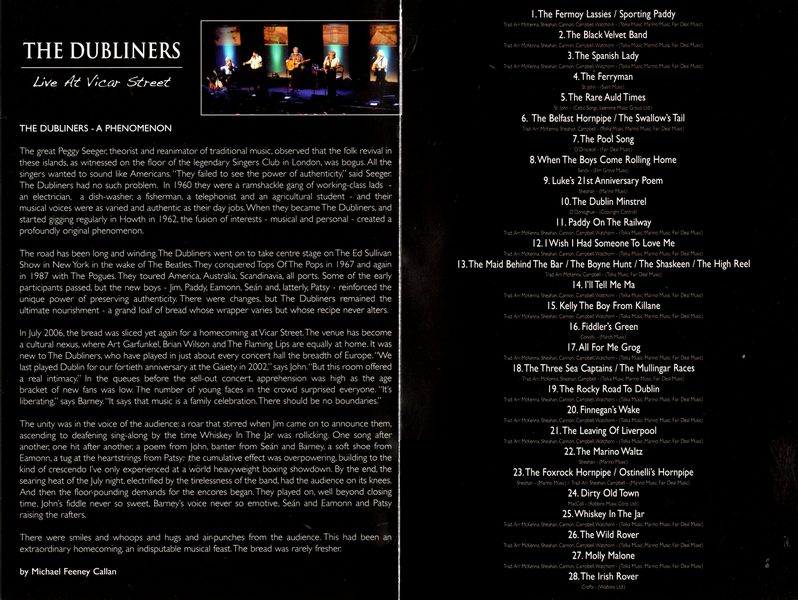
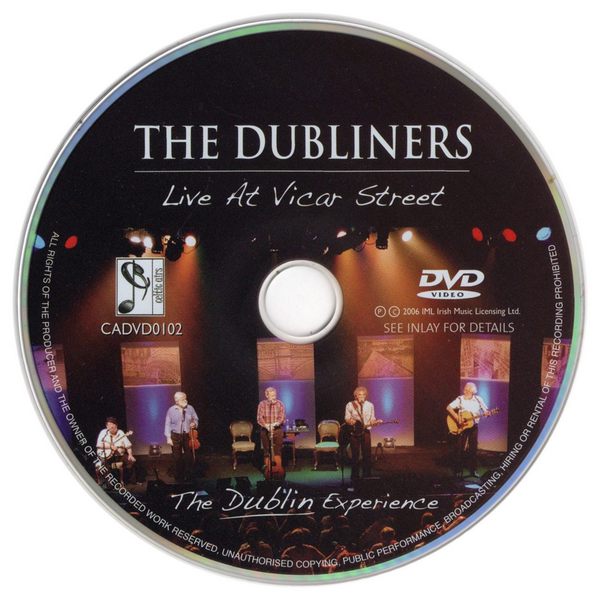 |
Sleeve Notes
THE DUBLINERS — A PHENOMENON
The great Peggy Seeger; theorist and reanimator of traditional music, observed that the folk revival in these islands, as witnessed on the floor of the legendary Singers Club in London, was bogus. All the singers wanted to sound like Americans. 'They failed to see the power of authenticity," said Seeger The Dubliners had no such problem. In 1960 they were a ramshackle gang of working-class lads — an electrician, a dishwasher a fisherman, a telephonist and an agricultural student — and their musical voices were as varied and authentic as their day jobs. When they became The Dubliners, and started gigging regularly in Howth in 1962, the fusion of interests — musical and personal — created a profoundly original phenomenon.
The road has been long and winding. The Dubliners went on to take centre stage on The Ed Sullivan Show in New York in the wake of The Beatles. They conquered Tops Of The Pops in 1967 and again in 1987 with The Pogues. They toured America, Australia, Scandinavia, all ports. Some of the early participants passed, but the new boys — Jim, Paddy, Eamonn, Seán and, latterly, Patsy — reinforced the unique power of preserving authenticity. There were changes, but The Dubliners remained the ultimate nourishment — a grand loaf of bread whose wrapper varies but whose recipe never alters.
In July 2006, the bread was sliced yet again for a homecoming at Vicar Street. The venue has become a cultural nexus, where Art Garfunkel, Brian Wilson and The Flaming Lips are equally at home. It was new to The Dubliners, who have played in just about every concert hall the breadth of Europe. “We last played Dublin for our fortieth anniversary at the Gaiety in 2002," says John. “But this room offered a real intimacy." In the queues before the sell-out concert, apprehension was high as the age bracket of new fans was low. The number of young faces in the crowd surprised everyone. "It's liberating," says Barney. “It says that music is a family celebration. There should be no boundaries."
The unity was in the voice of the audience: a roar that stirred when Jim came on to announce them, ascending to deafening sing-along by the time Whiskey In The Jar was rollicking. One song after another, one hit after another a poem from John, banter from Seán and Barney a soft shoe from Eamonn, a tug at the heartstrings from Patsy: the cumulative effect was overpowering, building to the kind of crescendo I've only experienced at a world heavyweight boxing showdown. By the end, the searing heat of the July night, electrified by the tirelessness of the band, had the audience on its knees. And then the floor-pounding demands for the encores began. They played on, well beyond closing time, John's fiddle never so sweet Barney's voice never so emotive, Seán and Eamonn and Patsy raising the rafters.
There were smiles and whoops and hugs and air-punches from the audience. This had been an extraordinary homecoming, an indisputable musical feast. The bread was rarely fresher
Michael Feeney Callan